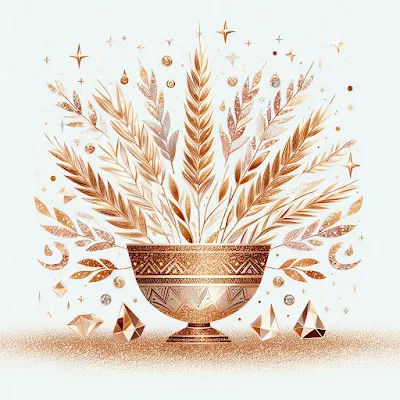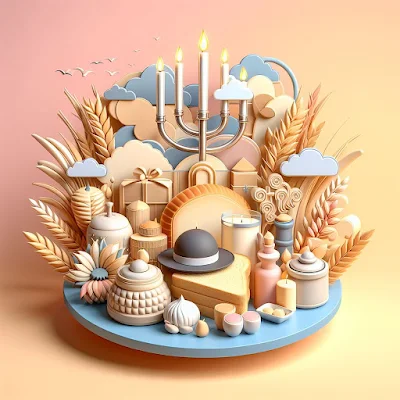Shavuot Crafts And Activities For Kids
Shavuot is a Jewish holiday that celebrates the giving of the Torah at Mount Sinai. It is a time for families to come together and celebrate, and there are many crafts and activities that kids can do to get involved in the festivities. Here are some Shavuot crafts and activities for kids:
1. Decorate a flower pot:
Shavuot is also known as the "Festival of the First Fruits," so it's a great time to celebrate the beauty of nature. Have kids decorate a flower pot with paint or markers, and then plant a flower or herb in it. This is a great way to teach kids about the importance of taking care of the earth.
2. Make a paper chain:
Cut strips of colored paper and have kids write down things they are thankful for on each strip. Then, link the strips together to make a paper chain. Hang the chain in a prominent place in your home to remind everyone of the things they are grateful for.
3. Create a Torah scroll:
Have kids make their own Torah scroll by rolling up a piece of paper and tying it with a ribbon. They can decorate the outside of the scroll with markers or stickers, and then read from it during your Shavuot celebration.
4. Bake a cheesecake:
Cheesecake is a traditional Shavuot food, so why not get kids involved in making one? There are many kid-friendly cheesecake recipes available online, and kids will love helping to mix the ingredients and decorate the top of the cake.
5. Make a paper plate basket:
Shavuot is also a time for giving, so have kids make their own paper plate baskets to fill with treats or small gifts. Cut a paper plate in half and staple the two halves together to make a basket shape. Then, decorate the outside of the basket with markers or stickers.
These are just a few ideas for Shavuot crafts and activities for kids. With a little creativity, you can come up with many more fun and meaningful ways to celebrate this special holiday with your family.
























